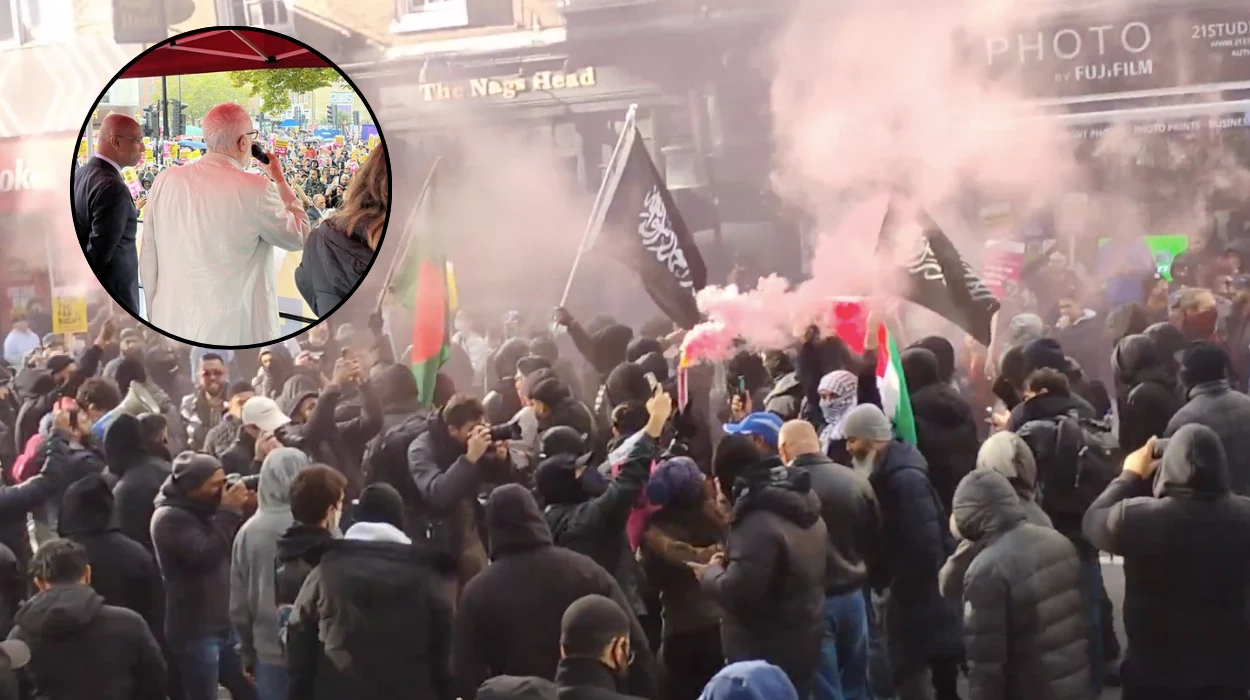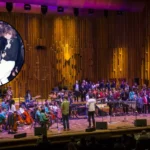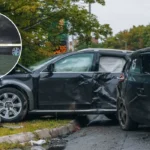Key Points
- Groups of masked Muslim men in Tower Hamlets chanted antisemitic slogans including “Zionist scum, off our streets” during a counter-protest against a far-right planned march.
- The Metropolitan Police were criticised by Downing Street and Keir Starmer for their response to antisemitic chants.
- The far-right UK Independence Party (UKIP) was banned from demonstrating in Tower Hamlets due to concerns over serious disorder.
- Counter-protests were organised by groups such as Stand Up To Racism, with Jeremy Corbyn and Tower Hamlets Mayor Lutfur Rahman addressing supporters.
- Reform UK leader Nigel Farage described the sight of masked men as “terrifying” and likened it to a foreign invading army.
- Despite calls to tackle antisemitism, chants and threats repeated by masked counter-protesters were not publicly condemned by political leaders addressing the rally.
- The government has emphasised police operational independence but expects robust action against antisemitism at protests.
- Keir Starmer has called for clearer definitions and stronger use of existing police powers to tackle antisemitic hate at demonstrations.
What happened during the protests in Tower Hamlets?
As reported by multiple sources, on Saturday in the East London borough of Tower Hamlets, crowds of masked Muslim men protested against a planned far-right march that had been banned from the area. Footage circulating showed these groups chanting the slogan “Zionist scum, off our streets,” while waving Bangladeshi, Pakistani, and Palestinian flags outside the local town hall. The masked men, dressed in black and wearing balaclavas, also chanted phrases such as
- Key Points
- What happened during the protests in Tower Hamlets?
- Why was the UKIP march banned in Tower Hamlets?
- How did political leaders respond to the protests and chants?
- What was Nigel Farage’s reaction to the demonstrations?
- Were there any incidents or notable interactions during the protests?
- What measures have the authorities taken regarding protests with antisemitic content?
- How has the Jewish community and related organisations responded?
- What is the broader context regarding antisemitic chants and protests in the UK?
“We will honour all our martyrs! From the river to the sea! Allahu akbar!”
during the counter-protest, which had been organised in response to the far-right UK Independence Party’s (UKIP) attempted march through the East End.
Why was the UKIP march banned in Tower Hamlets?
The Metropolitan Police banned the UKIP demonstration in Tower Hamlets due to concerns over “serious disorder.” UKIP had promoted the event with slogans like “take our country back” and “reclaim Whitechapel from the Islamists,” generating alarm because Tower Hamlets is the UK borough with the highest percentage of Muslim residents. Police applied Public Order Act restrictions preventing UKIP supporters from entering the borough, redirecting them to another part of London, Marble Arch. Commander Nick John explained that the presence of the march in the heart of Tower Hamlets was deemed likely to provoke serious unrest.
How did political leaders respond to the protests and chants?
Keir Starmer’s spokesperson reiterated the Prime Minister’s firm stance on tackling antisemitism, stating:
“The Prime Minister has been very clear on the need to tackle antisemitism,”
and highlighting that police possess “extensive public order powers to address the incidents.” When pressed on why antisemitic chants persist, the spokesperson emphasised respect for police operational independence but reiterated expectations that police
“manage protests and, where there is evidence of antisemitism, tackle it as a matter of urgency,”
and “respond robustly”.
However, Jeremy Corbyn and Tower Hamlets Mayor Lutfur Rahman, who addressed the counter-protest hosted by Stand Up To Racism, notably did not comment on the antisemitic chants or threats by masked men at the demonstration. Corbyn’s social media post instead praised the stand against the far right:
“Inspiring to join people of all faiths and none in Whitechapel today to keep the far right out of the East End.”
Rahman echoed unity against racism in his social media post.
What was Nigel Farage’s reaction to the demonstrations?
Nigel Farage, leader of Reform UK and former UKIP leader, described the sight of the masked Muslim men chanting on Tower Hamlets streets as “one of the most terrifying things I’ve ever seen in my whole life.” He compared it to “a foreign invading army marching through our streets,” highlighting concerns about the atmosphere created by such counter-protests. Farage’s comments reflect a critical stance on the counter-demonstrations organised in reaction to the far-right march plans.
Were there any incidents or notable interactions during the protests?
Yes. Video footage showed a man holding a Stand Up To Racism banner attempting to moderate the chants, stating,
“we are all on the same side, bro.”
He was rejected by a man in a balaclava who said, “No, we are not.” Another notable figure, known locally as “Big Fish,” who had promoted the sale of £5 balaclavas to “Muslim brothers,” appeared on stage at the counter-protest and was later seen shaking hands and hugging Tower Hamlets Mayor Lutfur Rahman.
What measures have the authorities taken regarding protests with antisemitic content?
The Metropolitan Police have recently imposed Public Order Act restrictions in London to prevent large-scale protests in sensitive areas. This includes preventing UKIP from marching in Tower Hamlets and restricting pro-Palestinian protests in central London near areas such as Whitehall and Downing Street.
In an exclusive interview with Jewish News, Keir Starmer highlighted concerns about policing where antisemitic chants occurred. He called for a clearer definition of antisemitism and stronger application of existing police powers, stating,
“Where something is clearly antisemitic, we need to do more about it.”
Starmer and Home Secretary Shabana Mahmood pledged to speak directly with police chiefs about using their current powers more effectively.
How has the Jewish community and related organisations responded?
Campaign Against Antisemitism representatives called for ending double standards and “cowardly appeasement” of extremists. They urged for hate marches bans, arrests of offenders and terrorist sympathizers, expulsion of university students glorifying terror, regulation of mosques hosting radical preachers, and sanctioning media outlets promoting antisemitic tropes. They emphasised the need for substantial change to protect the Jewish community, which they say has been “scarred forever”.
What is the broader context regarding antisemitic chants and protests in the UK?
The antisemitic chants “from the river to the sea, Palestine will be free” have been a flashpoint in protests, with some considering this slogan a call for Israel’s destruction. Prime Minister Sir Keir Starmer has labelled this chant antisemitic and urged police crackdown on such expressions. Despite his calls, demonstrations with similar content have continued across university campuses and London, especially tied to commemorations of the October 7 Hamas terror attacks.
The government faces a challenge balancing free expression, public order, and addressing hate speech, as large-scale protests from both pro-Palestinian and far-right groups have marked recent months.
The clash of far-right and anti-racist groups in London’s Tower Hamlets manifested in a turbulent weekend marked by banned demonstrations, masked counter-protesters chanting antisemitic slogans, and a police force under scrutiny. Downing Street and Sir Keir Starmer have stressed the need to harness existing police powers to address antisemitism, while political leaders supporting the counter-protest stopped short of condemning the offensive chants made by parts of their own supporters.
Reactions ranged from Nigel Farage’s alarm over perceived intimidation to calls from Jewish organisations to end appeasement of extremist rhetoric. With protest conditions and public order restrictions tightening, the law enforcement and government continue to navigate the fraught landscape between protecting community cohesion and handling polarised political demonstrations in diverse and sensitive urban areas like Tower Hamlets.


